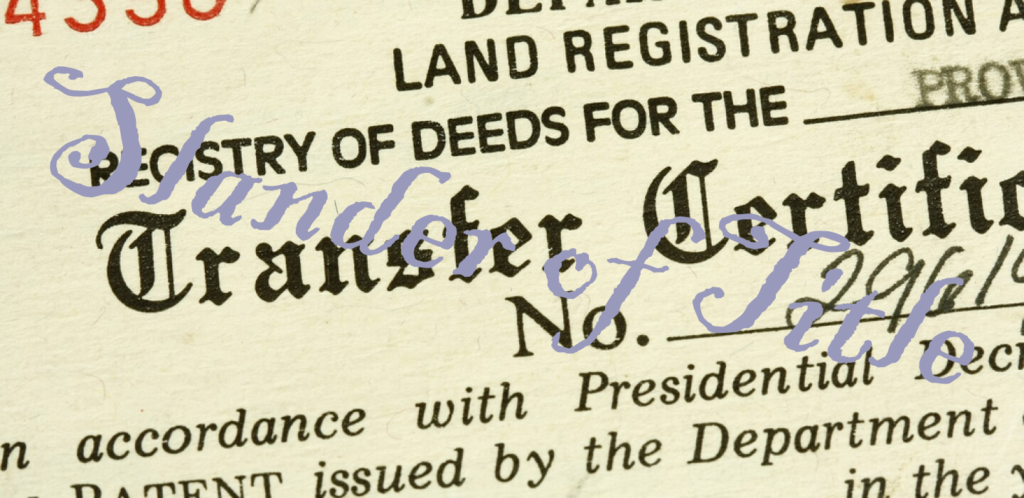
Slander of Title
Florida has long recognized a cause of action for slander of title under common law. See Lehman v. Goldin, 160 Fla. 710, 36 So. 2d 259 (1948). “[T]he terms ‘slander of title’ or ‘disparagement of title’ are used interchangeably to refer to the same cause of action.” Callaway Land & Cattle Co. v. Banyon Lakes C. Corp., 831 So. 2d 204, 207 n.1 (Fla. 4th DCA 2002). “Slander of title is generally defined in Florida as ‘a false and malicious statement, oral or written, made in disparagement of a person’s title to real or personal property, or of some right of his, causing him special damage.’” Phillips v. Epic Aviation, LLC, 234 F. Supp. 3d 1174, 1206 (M.D. Fla. 2017) (quotation omitted).
“In a slander of title action … the plaintiff must prove the following five elements: (1) A falsehood (2) has been published, or communicated to a third person (3) when the defendant-publisher knows or reasonably should know that it will likely result in inducing others not to deal with the plaintiff and (4) in fact, the falsehood does play a material and substantial part in inducing others not to deal with the plaintiff; and (5) special damages are proximately caused as a result of the published falsehood.” Trigeorgis v. Trigeorgis, 240 So. 3d 772, 775 (Fla. 4th DCA 2018) (quotation omitted).
Slander of Title v. The Litigation Privilege
It has been argued that a slander of title claim, as to a recorded lis pendens, is barred by the litigation privilege. The litigation privilege, which was the subject of a prior article, bars most claims based on allegations made in the context of a lawsuit, such as allegations in a plaintiff’s complaint. See Sailboat Key v. Gardner, 378 So. 2d 47, 48 (Fla. 3d DCA 1979) (“Statements and allegations in pleadings are absolutely privileged and cannot form the basis of a disparagement or slander of title suit.”).
As the argument goes, recording a lis pendens is a preliminary step in filing a lawsuit, such that it should also be protected by the litigation privilege. As a general matter, it had been held, “[s]ince the notice of lis pendens has no existence separate and apart from the litigation of which it gives notice … appellants’ filing of a notice of lis pendens was a part of the judicial proceeding to determine the existence of an easement and thus, it is encompassed within the judicial proceedings privilege.” Procacci v. Zacco, 402 So. 2d 425, 427 (Fla. 4th DCA 1981).
However, in this context, a defense of litigation privilege can be rebutted. “[W]hen the defendant disparages plaintiff’s title under circumstances supporting a privilege, the presumption of malice is rebutted and, as in a case of defamation, the plaintiff must then prove actual or genuine malice in order to recover.” Phillips v. Epic Aviation, LLC, 234 F. Supp. 3d 1174, 1206 (M.D. Fla. 2017). “This means that malice, in the ordinary sense of the term, is not important at all except to defeat the defense of privilege or to enhance damages.” Id. In other words, “[a] showing of privilege rebuts the presumption of malice and the plaintiff must then prove actual malice in order to recover in a slander of title action.” Id. at 1207 (emphasis added).
Thus, in the limited instances where the plaintiff can prove the lis pendens was recorded with actual malice, the litigation privilege would not be an absolute bar to a slander of title claim. In such instances, “[g]enerally, a wrongful and intentional filing of a notice of lis pendens will support an action for disparagement of property.” Bothmann v. Harrington, 458 So. 2d 1163, 1168 (Fla. 3d DCA 1984). “[H]owever … a distinction must be drawn between an improper filing in a procedural sense, and a wrongful filing in a substantive sense.” Id. “Only the latter will support an action for disparagement of property because only it meets the requisite falsehood element of the action.” Id. See also Miceli v. Gilmac Developers, Inc., 467 So. 2d 404, 405–06 (Fla. 2d DCA 1985) (“An intentional, wrongful filing of a notice of lis pendens will support an action for slander of title.”).
For example, in Phillips v. Epic Aviation, LLC, the Court found the creditor’s filing of the notice of lis pendens, falsely asserting that it had an interest in the debtors’ property, played a material and substantial part in inducing others not to deal with the debtors, as required for the debtors’ slander of title claim, where a prospective buyer stated in correspondence with the debtors and his real estate professionals that the creditor’s filing of the notice of lis pendens caused his contract to buy the property to fail to close.
Thus, where a plaintiff can prove that a lis pendens was wrongfully filed in a “substantive sense” and with actual malice to cause them damage, the litigation privilege would not apply, and a slander of title claim could be maintained. For example, wrongfully filed in a “substantive sense,” would occur where the party knew or should have known it did not have an enforceable lien on the property when they recorded the lis pendens. See Tetrault v. Calkins, 79 So. 3d 213, 216 (Fla. 2d DCA 2012) (Lis pendens founded upon alleged violation of deed restriction was not authorized because lienor had no interest in property and action did not affect title to property).
Statutory Cause of Action
Additionally, there is a statutory cause of action for the improper recording of documents against real property. In 2013, the Florida Legislature adopted Fla. Stat. § 817.535, providing criminal penalties for the unlawful filing of false documents or records against real or personal property. “A person who files or directs a filer to file, with the intent to defraud or harass another, any instrument containing a materially false, fictitious, or fraudulent statement or representation that purports to affect an owner’s interest in the property described in the instrument commits a felony of the third degree.” Fla. Stat. § 817.535(2)(a).
A person adversely affected by the filing of such an instrument in the official records has a civil cause of action under the statute. Fla. Stat. § 817.535(8)(a). If the unlawful filing is proven, the court or jury is required to award actual and punitive damages, and the prevailing party is entitled to recover costs and attorney fees. Fla. Stat. § 817.535(8)(b)(2) & (c). The court may also order the removal of the instrument from the official record. Fla. Stat. § 817.535(8)(b)(1).
A claim for statutory slander of title can also be maintained, notwithstanding the litigation privilege, on the same grounds discussed above in connection with a common law claim for slander of title. See Moise v. Ola Condominium Ass’n, Inc., 314 So. 3d 708, 710 (Fla. 3d DCA 2021) (reversing order granting motion to dismiss statutory slander of title action as being barred by Florida’s litigation privilege where the association had actual knowledge that its claim of lien was baseless).

